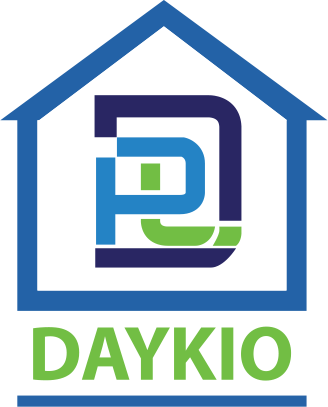According to Statista, Kenya’s real estate sector has developed at an exponential rate of 6.1% during the first quarter of 2022, as indicated by its contribution to GDP of 6.7% in the same quarter. This development is fueled by the following:
- Infrastructure development projects (road, rail, energy, port, and airport modernisation)
- High average total returns of 25%, compared to 12.4% for traditional asset classes.
- Stable GDP growth of 5.4% over the last five years.
- Demographic trends include rapid urbanization of 4.4% per year compared to the world’s 2.5%.
- Population growth of 2.6% per year.
As a result of these causes, distinct patterns have emerged across the many real estate themes, as investors sought high profits and buyers wanted idealistic lifestyles and top-of-the-line products.
Residential
According to National Housing Corporation, rapid population growth particularly in the middle class has led to the residential sector recording the highest national housing shortage of 200,000 units per year, with a cumulative deficit of almost 2 million units. Affordable housing has been in great demand to accommodate the 61% of urban people who live in slums, with a scarcity of student housing accounting for 40% of the deficit.
Consequently, this demand has brought about a wave of application of low costing housing construction methods by developers such as alternative building technologies which reduce construction costs by as much as 50%. Furthermore, master-planned communities are expanding due to the demand for a live-work-play lifestyle, with Kiambu and Machakos counties emerging as hotspots. Examples of notable master-planned communities are Konza City and Tatu City.
Land
Development in infrastructure has increased land value while population growth has sustained the demand. Investors are increasingly purchasing land to sell it in the future, expecting land values to the goal of selling it in the future in the expectation that land values will rise; this practice is referred to as land speculation. The land could be placed for temporary use that generates cash regularly, a notion known as land banking. Developers are also including agribusiness as a value addition to plots designed for sale and providing returns to customers on a seasonal basis to draw purchasers. Agribusiness is a concept that includes farming activities, agro-insurance, comprehensive farm management services, and a guaranteed market for the produce.
Daykio is well-known for its land properties located outside the city centre that have a good appreciating value. Properties like Bustani Residential are 95% sold, which shows our properties are a secure investment option.
Commercial
- Office
Kenya is considered the key gateway to the East African market and a leading economic hub in Sub-Saharan Africa. Therefore, the office sector has increased rapidly due to firms expanding their operations here because of the improving economy over the last decade.
Due to changing consumer preferences and the requirement for products meeting international standards, the sector is experiencing new developments as it expands. The growth of SMEs has contributed to the gradual rise in the popularity of serviced offices. As the dynamics of office space design and demand continue to expand, more developers are beginning to offer semi-fitted offices by including amenities like kitchen cabinets and dividers. Green building technology is increasingly being used by developers in order to minimize running costs and create a safe and healthy environment for workers, and it has also been shown to boost staff productivity.
Daykio Plaza is a prime example of office space SMEs can let to help flourish their business. With its location along Ngong’ road, the clientele is assured and the amenities in the building are the cherry on top.
- Industrial
The industrial sector, like the office sector, has been gradually transforming in response to a changing consumer base that prefers high-quality products, allowing for contemporary retailing, distribution, and manufacturing processes. This has resulted in contemporary industrial parks such as Tatu City Industrial Park, Infinity Industrial Park, and Tilisi. The modern parks are likewise constructed to support the live, work, and play lifestyle. Furthermore, the new market requires a tranquil site that is apart from the busy Nairobi Industrial Area, Baba Dogo, and Mombasa Road districts, which house the majority of Kenya’s old stock, primarily antiquated warehouses. To accomplish this, new industrial parks are presently being established on Nairobi’s outskirts, such as in Kiambu and Machakos counties that are easily accessible.
Hospitality
The hospitality sector is heavily reliant on the tourist sector, which increased by 17.8% in 2016 from Kshs 84.6 billion in 2015 to Kshs 99.7 billion in 2016, while overseas arrivals increased by 13.5% from 1.2 million in 2015 to 1.3 million in 2016.
The government’s push for meetings, incentives, conferences, and exhibitions (MICE) has played a crucial role in boosting the number of international visitors, who are the bedrock of the hospitality sector. Developers are transforming conventional sites into hotel accommodations in order to diversify their revenue streams. A new concept, dual-branding, which entails having two concepts, such as serviced flats and a hotel, in the same structure, is also being explored.
With the continuous interest in Kenya’s real estate market from both local and international partners, this industry is destined for growth. We are key players in this market with ample experience in the business. If you would like to start your homeownership or investment journey, you can view our available property listings here: https://daykio.com/daykio-plantations/property-listings/
Feel free to contact us with your queries via sales@daykio.com or 0791800851.
